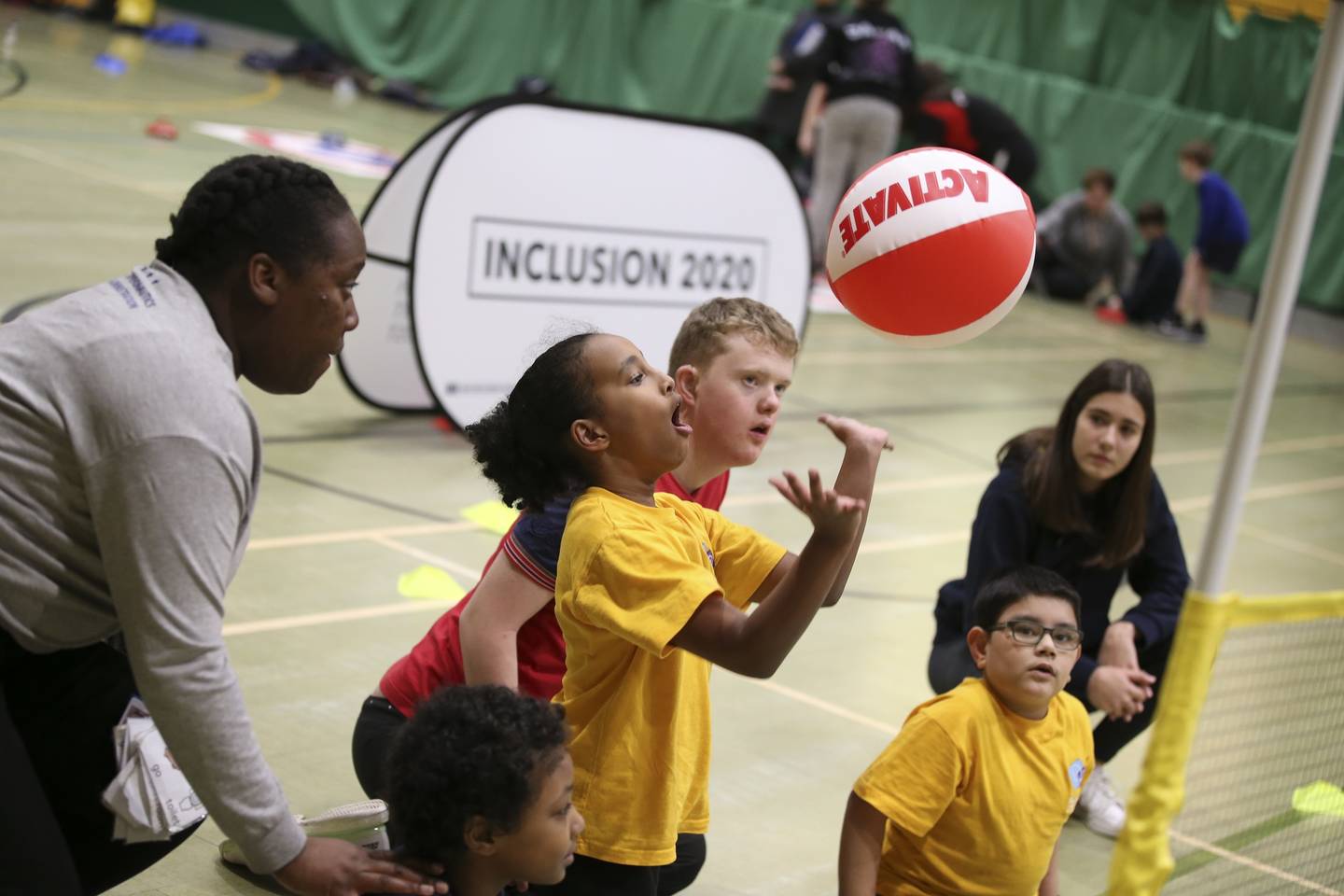Programme inspires next generation of inclusive sport leaders
A ‘lifechanging’ three-year Government programme for young people with and without Special Educational Needs and Disabilities (SEND) has given 25,997 participants the opportunity to access inclusive school swimming and water safety resources, experience para-sports as part of fun festivals, and learn new skills.

New data looking at the impact of the Inclusion 2020 programme between January 2019 and March 2021 has been released today by children’s charity the Youth Sport Trust. The charity said it marks the start of a two-week spotlight on giving all children the chance to experience the benefits of high-quality PE and sport. It comes as the charity is championing active recovery with a month to go until its annual National School Sport Week celebration in June, where thousands of inclusive sports days will be held.
With the support and funding from the Department for Education, in the last 10 months alone, the programme saw 10,000 young people enabled to access inclusive festivals within their school or home for the first time amid the pandemic.
It has also:
- Trained 2,163 young people (32% with SEND) to lead sports sessions and coach their peers through fun sports festivals
- Given 23,827 young people (42% with SEND) the opportunity to try para-sports like Boccia, New Age Kurling, and para-skiing
- Started 2,170 young people with SEND on their learn to swim journey
- Supported 9,328 schools with continuing professional development to ensure sport and Physical Education is inclusive to every child
The Inclusion 2020 programme sees a network of YST Lead Inclusion Schools, each recognised as inclusion champions and visionaries for what high quality, meaningful and inclusive PE and school sport should look like for every child, working directly with young people, parents, organisations and other schools to ensure that having a disability does not reduce a young person’s opportunity to benefit from high-quality PE, sport and physical activity.
Schools Minister Nick Gibb said:
“I’m pleased to see the positive impact our Inclusion 2020 programme has had on children with special educational needs and disabilities, allowing them to take part more easily in sport and learn new skills like swimming. These activities are so important not just for physical and mental wellbeing, but also for developing the resilience to tackle challenges later in life.
“Physical activity and wellbeing goes hand in hand with academic success – that’s why we launched our ambitious School Sport and Activity Action Plan and why we are investing more than £10 million to help open existing school sports and swimming facilities as national restrictions ease.”
Ali Oliver, Chief Executive at the Youth Sport Trust, said:
“Contributing to the excitement and building on the inspiration of the upcoming Paralympic Games, Inclusion 2020 has been a real game changer for so many young people with and without SEND. Through new experiences and learning leadership, confidence, and communication skills through sport, it truly has been lifechanging for the thousands of young people.
“What has been achieved over the last three years would simply not have been possible had it not been for the hard work, dedication and expertise of our consortium partners and I would like to take this opportunity to thank them and the DFE for helping us to deliver on our mission.”
The Inclusion 2020 consortium has shared top tips and learnings from its research across the three-year programme:
- Swimming and water safety. Consider dry-side and water safety activities while pools start to adjust and reopen. Inclusion 2020 schools have also tried; drawing pools on playgrounds so pupils can see and practice how to enter and exit the water, playing games that encourage wearing flotation devices to address any sensory concerns prior to entering the pool and practicing the language used in swimming lessons such as entry/exit and start/stop
- Life skills. Whether isolating and learning remotely, or in class, be mindful of how to keep life skills on pupils’ radar. Consider weekly physical skill 'challenges' using social media or other remote platforms. Pupils can log examples of when they have shown resilience a) by doing a physical activity b) by tackling some remote schoolwork c) by managing lockdown life generally. Teachers could try this too by starting learners off by sharing their own examples
- A blend of virtual and face to face delivery. Through designing a blended approach of offering virtual engagement as well as face to face, schools found that even more pupils could engage than previously anticipated. This meant all pupils felt connected- accessing if self- isolating at home as well as in their class bubbles.
- Communication and collaboration. There needs to be more dialogue between schools (such as Alternative Provision and mainstream) to share challenges, experiences, and solutions. The consortium of organisations includes Activity Alliance, the British Paralympic Association, Nasen (National Association of Special Educational Needs), Youth Sport Trust and Swim England. Parents and young people are also part of the consortium group.
For more information on Inclusion 2020 and to read the programme’s insight report in full please visit www.youthsporttrust.org/inclusion-2020.